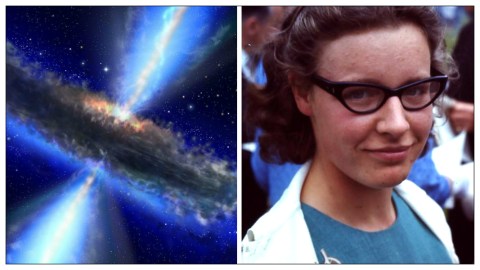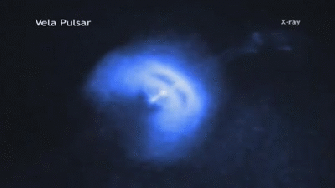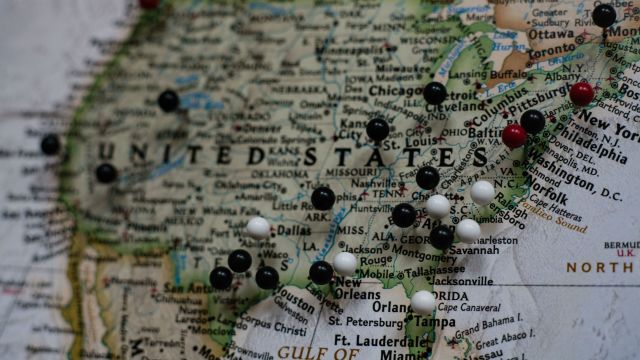Astrophysicist edged out of Nobel prize wins $3 million award for discovering pulsars

The astrophysicist Dame Jocelyn Bell Burnell has been awarded a special Breakthrough Prize for discovering radio pulsars in the 1960s. In addition to a $3 million cash prize, she’s scheduled to receive an award at a Silicon Valley gala in November.
The prize comes more than 50 years after her landmark discovery of the peculiar neutron stars that emit intense beams of radiation as they spin.
“I have to admit I was speechless,” Bell Burnell said about winning the Breakthrough Prize. “This had never entered my wildest dreams. I was totally taken aback.”
In 1967, when Bell Burnell was a young PhD student at the University of Cambridge in the U.K., she was appointed to run a newly built “dipole array” telescope. During this time, she analyzed the data it produced, which came in the form of pen marks on moving paper.
In November 1967, she noticed a “scruff” of activity in the data.
“It was a very, very small signal. It occupied about one part in 100,000 of the three miles of chart data that I had,” Bell Burnell told The Guardian. “I noticed it because I was being really careful, really thorough, because of impostor syndrome.”

After taking a second look at the data, Bell Burnell realized that the “scruff” in the data was actually series of highly regular pulses separated by 1.33 seconds. It was probably radio interference, proposed Anthony Hewish, Bell Burnell’s supervisor at the time. But subsequent observations from other instruments and other cosmic sources kept yielding the same strange, regular pulses. They weren’t sure what to make of it.
“We did not really believe that we had picked up signals from another civilization, but obviously the idea had crossed our minds and we had no proof that it was an entirely natural radio emission,” Bell Burnell said. “It is an interesting problem—if one thinks one may have detected life elsewhere in the universe how does one announce the results responsibly?”
The team spent several months eliminating other possible explanations for the pulses, including the ‘little green men’ hypothesis. In February 1968, they announced the discovery of pulsars in a Nature paper that rocked the science world.
“The excitement was because this was a totally unexpected totally new kind of object, behaving in a way astronomers had never expected, never dreamt of,” Bell Burnell told the BBC.
In 1974, Hewish received a Nobel prize for the discovery. Bell Burnell did not.
Still, Bell Burnell never complained.
“I feel I’ve done very well out of not getting a Nobel prize,” she told The Guardian. “If you get a Nobel prize you have this fantastic week and then nobody gives you anything else. If you don’t get a Nobel prize you get everything that moves. Almost every year there’s been some sort of party because I’ve got another award. That’s much more fun.”
Bell Burnell went on to become the first female president of both the Institute of Physics and the Royal Society of Edinburgh, and she told the BBC that she plans to use her prize money to help counter “unconscious bias” in physics research.
The discovery of pulsars has helped scientists learn more about the universe in many ways, including pulsar timing, which enables researchers to use pulsars to detect exoplanets; using pulsars as navigation tools for spacecraft; and as a way to test Einstein’s theory of general relativity.
On the notion of feeling like an impostor as a young woman in a male-dominated field, Bell Burnell said she tried to squash her doubts by pushing herself to the limits.
“I’m a bit of a fighter, so I decided that until they threw me out I would work my very hardest,” she told The Guardian. “Then, when the time came, I wouldn’t have a guilty conscience. I’d know I had done my best.”





